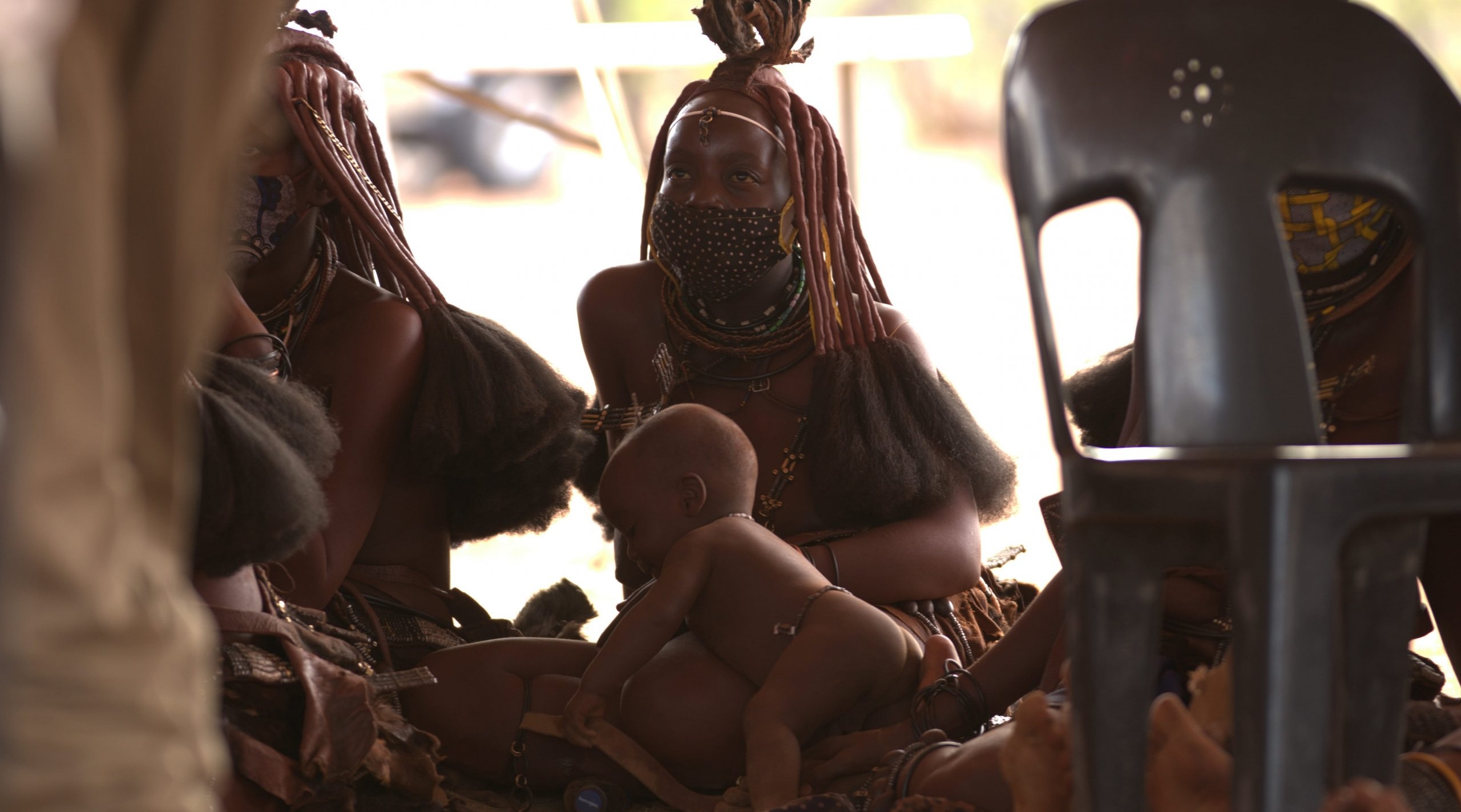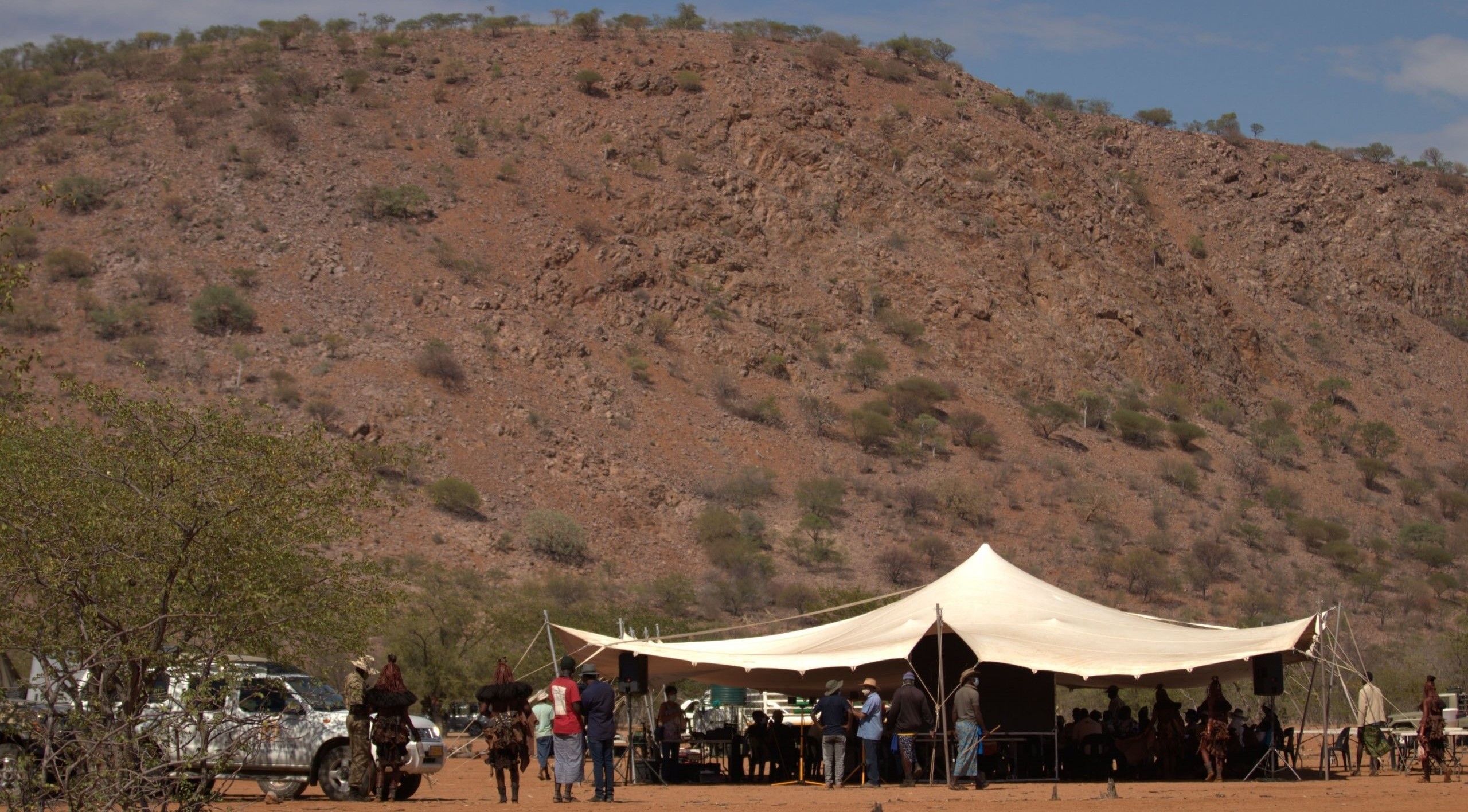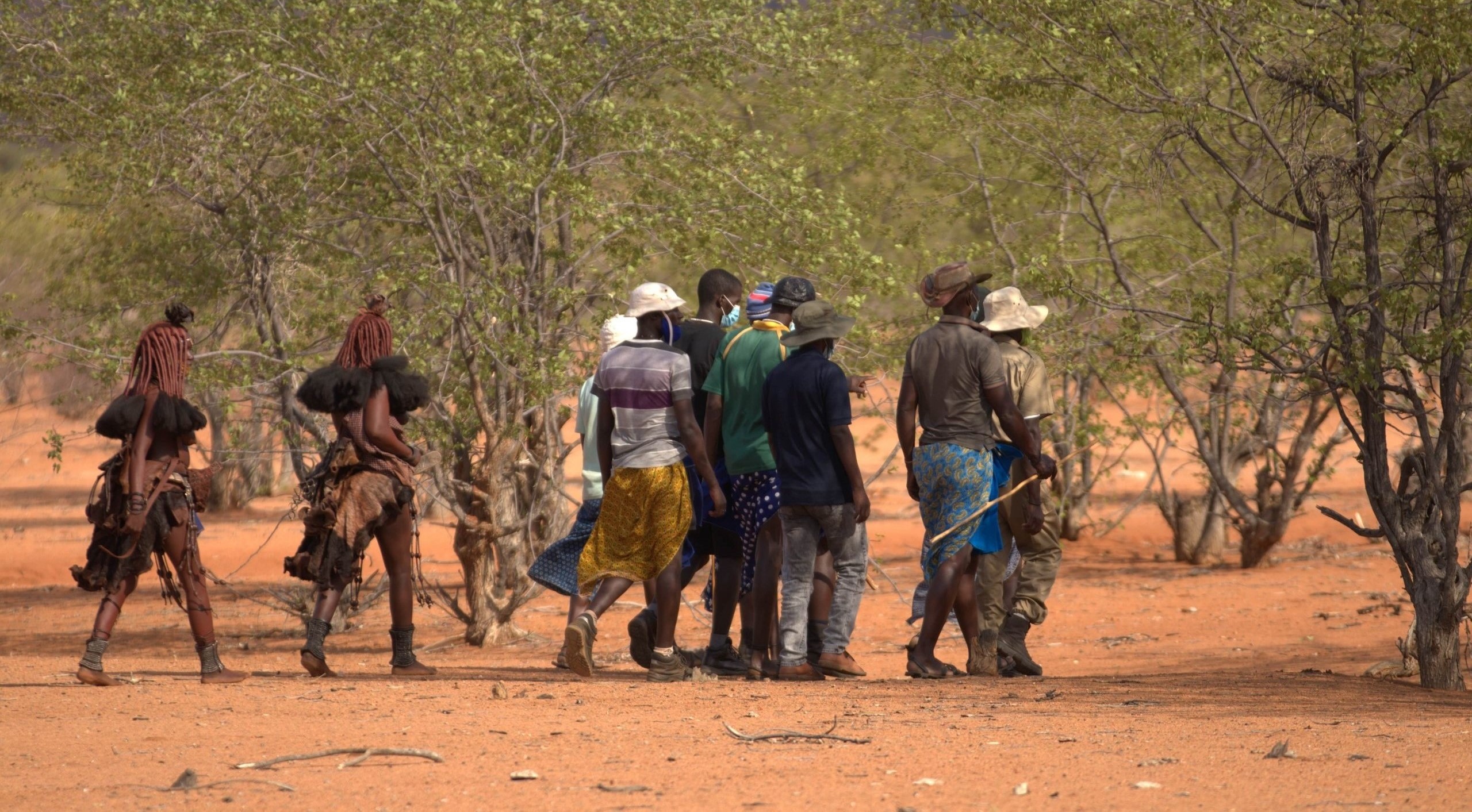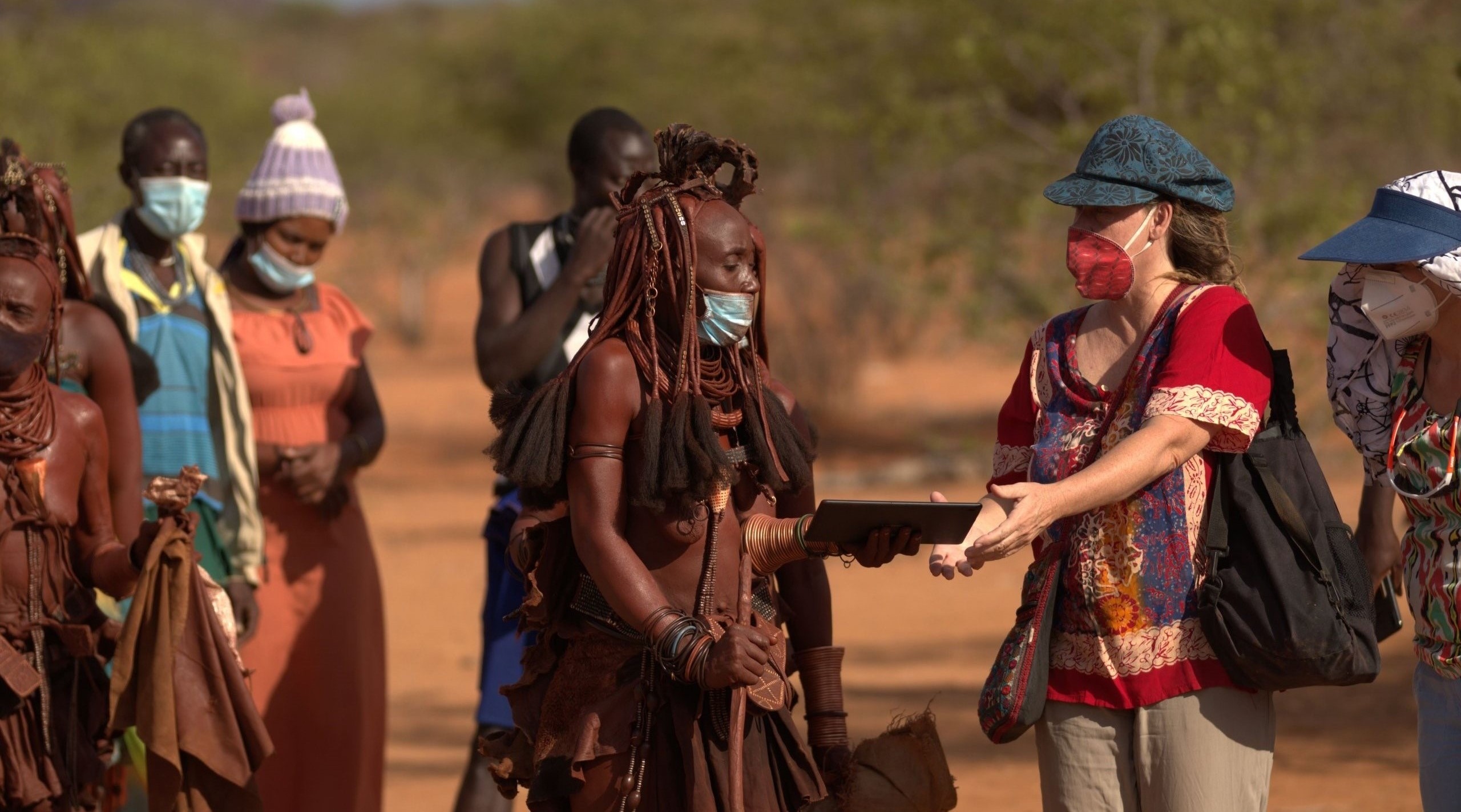Inaugural Indigenous Community Knowledge fair with Epupa, Okanguati, Orupembe and Marienfluss
Community members from four conservancies, Epupa, Okanguati, Orupembe and Marienfluss together , with NUST students, researchers and NGOs gathered under the
radiating Namibian sun to discuss matters pertaining to sustainable ecosystem management. The students from the Faculty of Natural Resource Management and Spatial Sciences presented the research work that they have undertaken for the past three years under the SCIONA project, whereas researchers from the Faculty of Computing and Informatics co-facilitated digital technology sessions and the communities expounded on the management of their conservancies and lived indigenous experiences.To support ecosystem management technology was co-designed and deployed. Primarily, the technology amplified the experiences and knowledge that the communities have gathered over centuries. This is part of the deliberate and concentrated actions to integrate indigenous knowledge with mainstream knowledge systems. An instance in which this is applicable is wildlife conflict mitigation, such as for lions. A community member eluded to the relevance of integrating their traditional tracking knowledge into technological applications to have solicited informed mitigation measures. This was asserted by Mavetoto Tjiningire, the Orupembe field officer, who eluded that the data collection applications, when combined with their established knowledge and experiences, have enabled them to make informed decisions pertaining to wildlife movement.
Muhapikua, a long-term community collaborator who has been using the MCT application to collect indigenous plant knowledge demonstrated the use of MCT during an ethnobotanical walk, whereby she emphasised the importance of knowledge collection and dissemination, especially for younger generations who may not be aligned with their culture, in addition to a wider audience. However, that is only possible when knowledge is constantly passed on, elevated and recognised in relation and association to mainstream knowledge systems as part of a knowledge interfusion process. This can be done through intercommunity knowledge transfer and scaffolding. Hence, a call of order is made out to researchers, scientists, knowledge-collectors and disseminators to be open to and support a different type of knowledge that has been utilised and verified for centuries through lived experiences. The Knowledge fair was a platform that offered a gateway for such integrations and interactions. The community members were euphoric about the event. The Vice-Chairperson of Epupa conservancy, Hangekaova Mbinge, mentioned that many communities, students, researchers and NGOs coming together as one and sharing is delightful and imperative towards the sustenance of their culture and connections.




